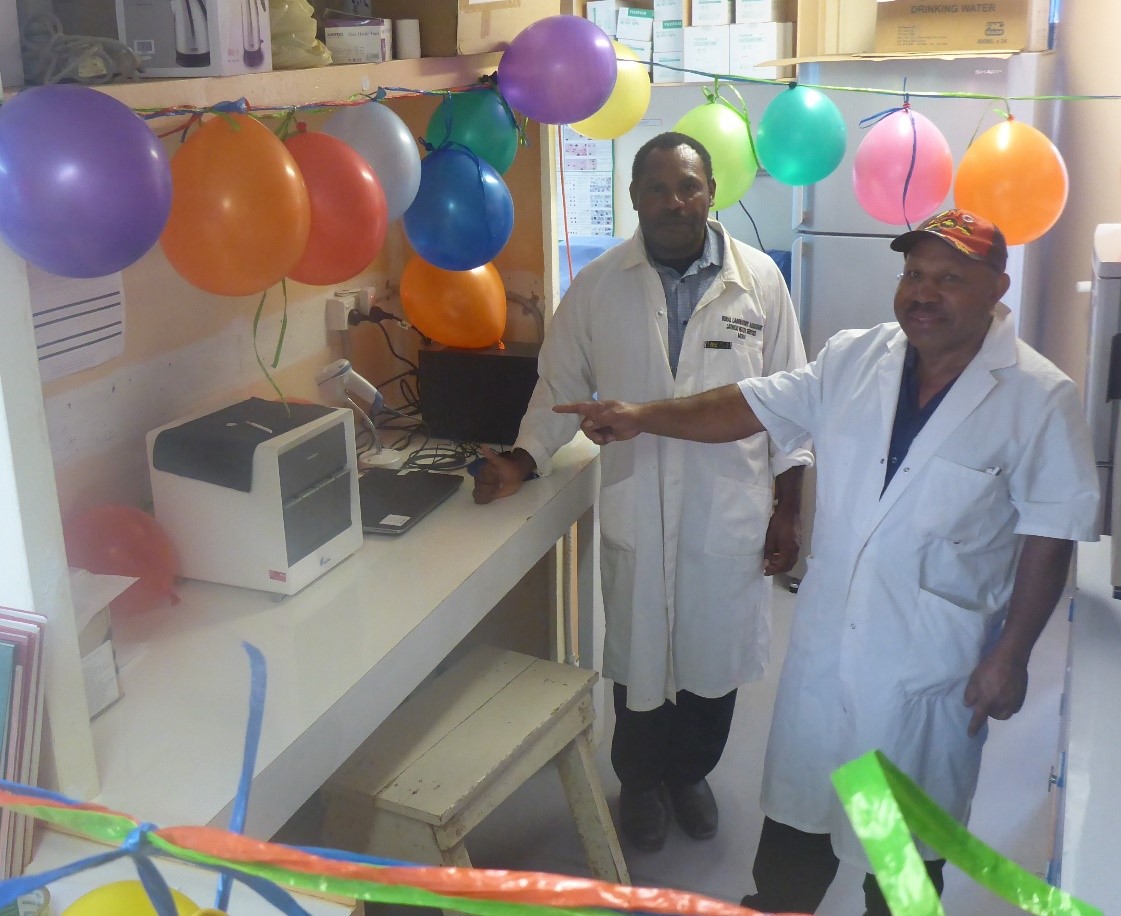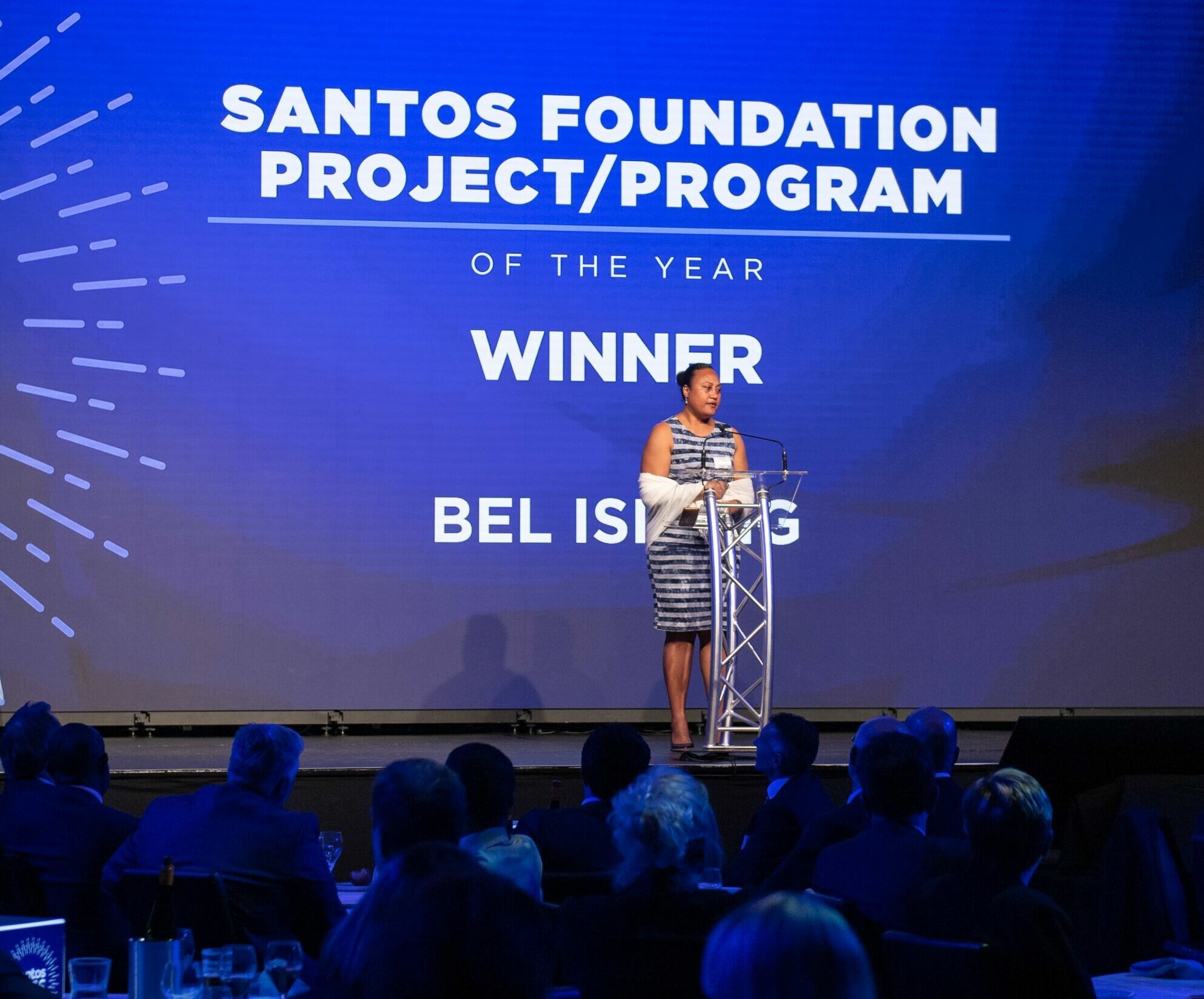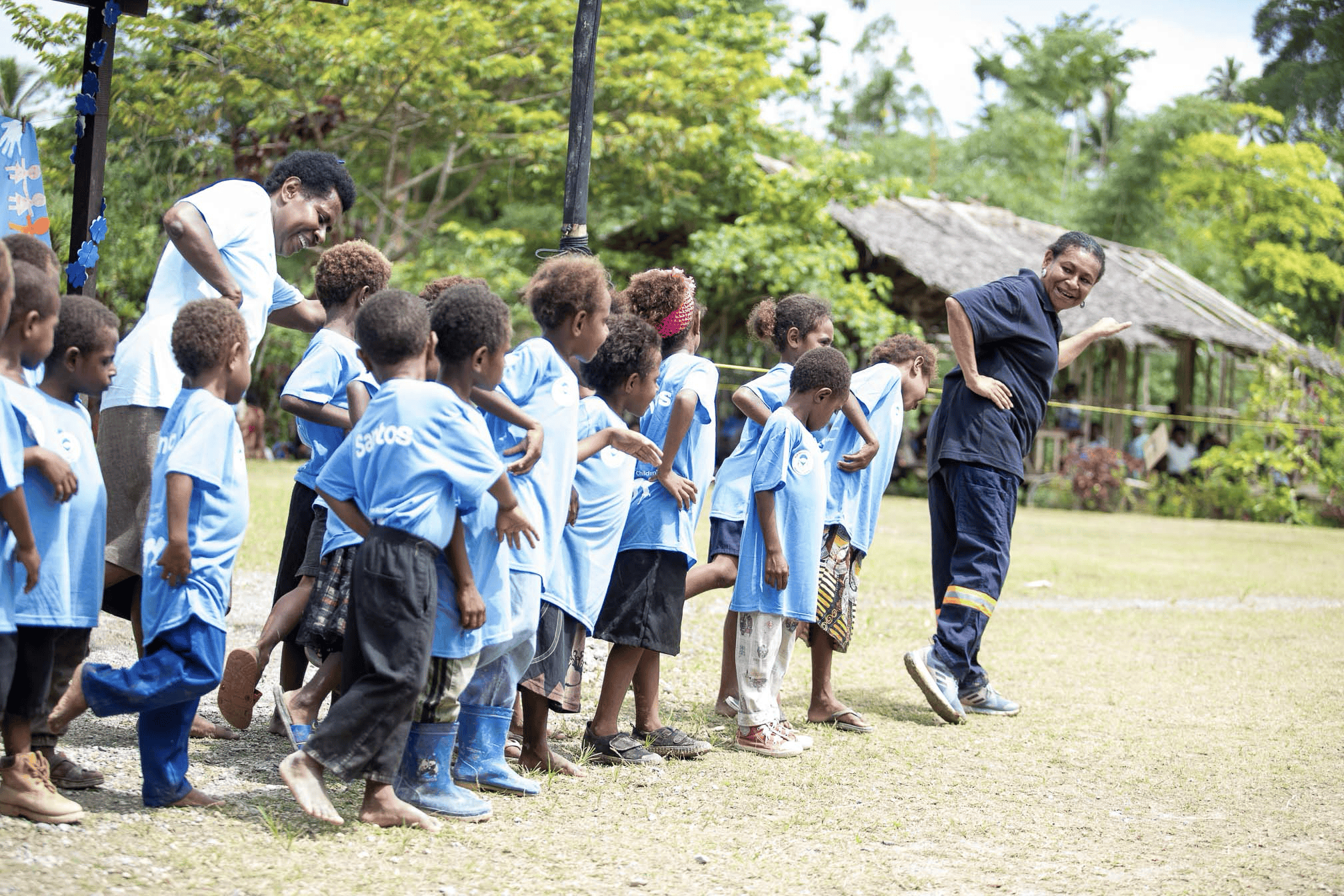
HELA PROVINCE, PAPUA NEW GUINEA
The work to diagnose tuberculosis (TB) in Hela province has improved dramatically following the installation of a GeneXpert machine donated by OSF. Two recent cases in Hela highlight the role of early diagnosis in saving lives, helping people resume employment, and supporting them to get back to their communities as quickly as possible.
Previously all tests had to go to the Central Public Health Laboratory in Port Moresby and it could take weeks for test results to return to the hospital. This often led to delays in urgent treatment.
‘The GeneXpert is a game changer in improving the efficiency of making a diagnosis of TB. It is a big step for the Hela TB program which now brings the service up to a standard which equals or exceeds what’s possible in many other provinces,’ said OSF Public Health Medical Officer Vincent Pyakalyia.
The Hela Provincial Hospital, supported by OSF, has been improving its approach to assisting people who present with suspected TB. Since the new diagnostic machine was installed, 250 people have been tested with 30 people diagnosed with TB and 2 people with drug resistant TB. The improvement at the hospital has also resulted in 40 people in the last three months completing their TB treatment successfully.
"With such a high level of TB diagnostics now available at the Hela Provincial Hospital, we start treatment early so people can continue their lives.”
Two patients, Mary and Alia, were found to have drug-resistant tuberculosis after testing using the newly installed GeneXpert unit at Hela Provincial Hospital. Mary has faced many challenges in her life including dealing with family violence and went back to her village when she suddenly fell ill earlier this year. She never had tuberculosis before, but after just three weeks on second line tuberculosis treatment, Mary says she feels better, and she thanks God and the PHA for helping to make her diagnosis and helping her receive the appropriate medicine.
Alia, in his late 40s, is a tradesman who lived and worked in Port Moresby for many years. He then moved back to his wife’s village in Hela. He presented twice at the Hela Provincial Hospital and was treated for drug-sensitive tuberculosis, before he was diagnosed with drug-resistant tuberculosis. Alia has already lined up work after just three weeks of second line tuberculosis treatment, because he feels he is ready to go back to work. He is also very grateful that his early diagnosis with drug-resistant tuberculosis has saved his life.
TB is particularly prominent in some provinces, with estimations that over 432 in every 100,000 people suffer from the disease. It is considered one of the leading causes of death in PNG.
‘Mary and Alia wanted to share their stories to encourage other people to see a doctor and to complete TB treatment which will save lives’ said Rod Ingersoll, the OSF Provincial Development Manager in Hela.
It is estimated that over 90 percent of the population in the developing world carry the TB bacteria.
TB is very preventable. But once active, the person is contagious and can spread the disease quickly.
The PHA urges anyone who thinks they may have tuberculosis to see a doctor.
‘Our diagnosis and treatments are improving all the time and we can save people’s lives and save many families and communities the tragedy of losing family members way too young. Mary’s and Alia’s stories are a good example of how early diagnosis can be the difference between life and death or prolonged ill health’ said Dr Kintwa.



